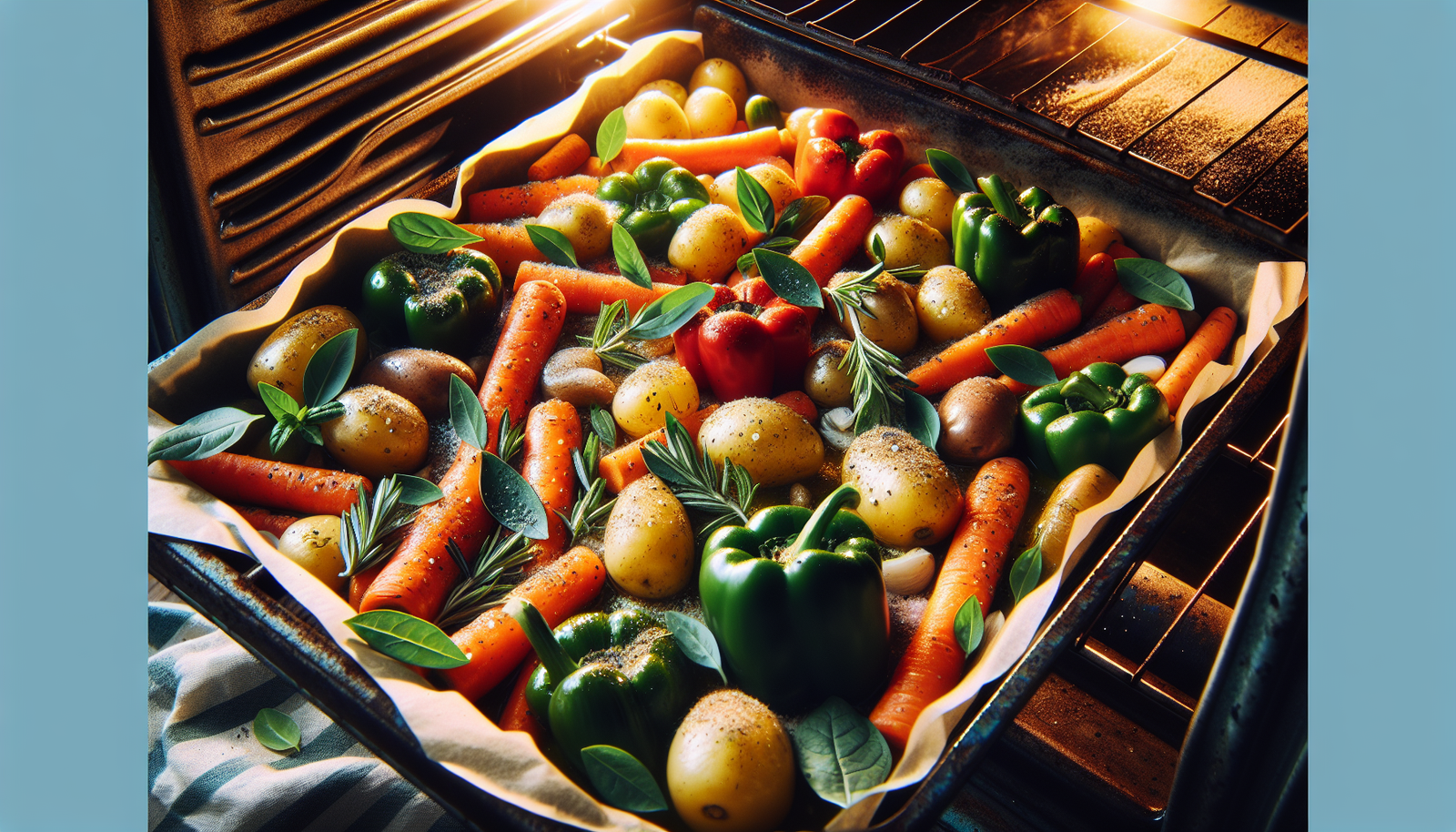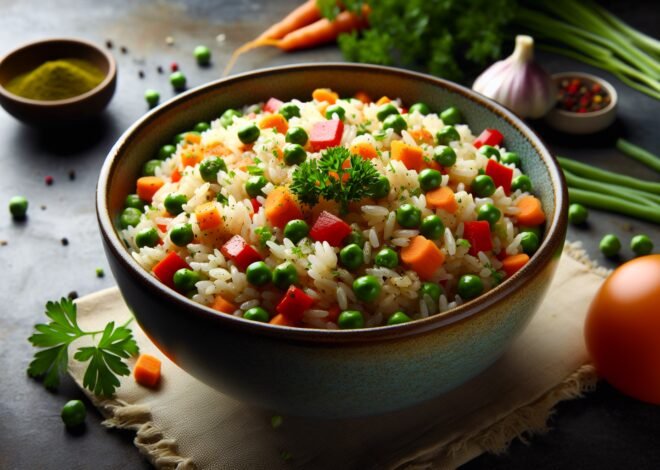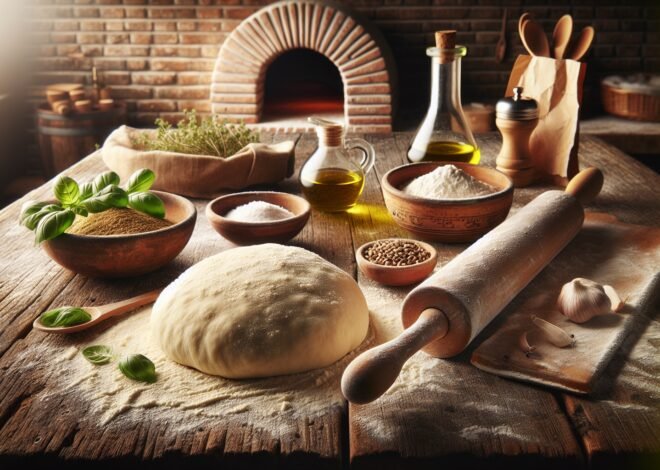
How to Season Vegetables for Maximum Flavor?
Vegetables don’t have to be bland! Learn how to season them in ways that bring out their natural flavors and enhance their taste. This guide will cover various techniques for adding the right amount of seasoning to vegetables, whether you’re grilling, roasting, or steaming them.
Why Vegetables Need Seasoning
Vegetables, while naturally delicious, often need a bit of help to reach their flavor potential. Seasoning plays a crucial role in this transformation, taking simple ingredients from bland to brilliant. Let’s explore the magic that seasoning brings to the world of vegetables.
Enhancing Natural Flavors
Seasoning helps vegetables shine by boosting their natural flavors. Without the right seasonings, vegetables can taste flat and unexciting. Salt, pepper, and other seasonings work together to enhance the inherent sweetness or earthiness of each vegetable. For example, a sprinkle of salt can bring out the sweetness in carrots, while a dash of pepper can add depth to mushrooms. By enhancing these natural flavors, seasoning allows vegetables to become the stars of any dish.
Importance of Proper Salt Levels
Salt is a fundamental seasoning that can make or break a dish. It’s critical to use the right amount to avoid overpowering the natural flavors of the vegetables. Too much salt can mask the delicate tastes, while too little can leave them bland. The key is to find a balance that complements the vegetables without overwhelming them. A good rule of thumb is to start with a small amount and adjust as needed. This way, you’ll achieve that perfect savory touch that enhances without taking over.
Using Herbs and Spices
Herbs and spices are the seasoning secret weapons that bring vibrancy and complexity to vegetables. They introduce aromas and flavors that transform dishes from ordinary to extraordinary. Fresh herbs like basil, parsley, and cilantro add a burst of freshness, while dried spices such as cumin, paprika, and turmeric can add warmth and depth. Experimenting with different combinations can elevate the flavor profile of your vegetables, making them more enticing and enjoyable.
Seasoning Techniques for Roasted Vegetables
Roasting is a popular method that brings out the best in vegetables, but the right seasoning technique is key. Each step in the seasoning process is important, from start to finish, to ensure your roasted vegetables are bursting with flavor.
Pre-Roasting Seasoning Steps
Before roasting, a few key steps can set the stage for flavorful vegetables. Start by tossing your veggies in a bit of olive oil. This helps them cook evenly and develop a nice caramelized exterior. Next, add your choice of salt, pepper, and herbs. Consider garlic powder or onion powder for an extra layer of taste. Mixing these seasonings with the oil ensures they coat the vegetables evenly, infusing them with flavor right from the start.
Timing Your Seasoning During Cooking
Timing is essential when it comes to seasoning roasted vegetables. Some herbs and spices can lose their potency if added too early in the cooking process. For example, delicate herbs like basil or parsley are best added towards the end of roasting. This prevents them from burning and losing their vibrant flavors. On the other hand, sturdier herbs like rosemary and thyme can withstand the full cooking time, imparting their aromatic qualities throughout.
Post-Roasting Flavor Enhancements
Once your vegetables are perfectly roasted, a final touch of seasoning can take them to the next level. Try adding a sprinkle of flaky sea salt or a drizzle of balsamic glaze to enhance the flavors further. A squeeze of fresh lemon juice can also add a refreshing brightness that balances the richness of the roasted vegetables. These finishing touches add layers of complexity that make your dish memorable.
Grilled, Sautéed, and Steamed Vegetables
Different cooking techniques require tailored seasoning approaches to bring out the best in vegetables. Whether you’re grilling, sautéing, or steaming, the right seasonings can unlock a world of flavor.
Seasoning for Grilled Vegetables
Grilling imparts a smoky flavor that pairs beautifully with the right seasonings. A marinade can infuse vegetables with robust flavors before they hit the grill. Consider a mixture of olive oil, lemon juice, garlic, and herbs like oregano or rosemary. Coat your vegetables in the marinade and let them sit for at least 30 minutes. This adds depth and ensures the seasoning penetrates every bite.
Flavoring Sautéed Vegetables
Sautéing vegetables is all about achieving a balance of flavor and texture. Start by heating a bit of oil or butter in your pan to help develop flavor and prevent sticking. Add garlic or shallots for a fragrant base, then toss in your vegetables. Season with salt and pepper, and consider adding spices like paprika or cumin for warmth. The key is to stir frequently, ensuring even seasoning and cooking.
Light Seasoning for Steamed Vegetables
Steaming is a gentle cooking method that preserves the nutrients and natural flavors of vegetables. Light seasoning is best to avoid overwhelming their delicate taste. Try a sprinkle of salt and a dash of lemon juice to enhance their freshness. Fresh herbs like dill or mint can also add a subtle yet refreshing flavor. Steamed vegetables are perfect with light, simple seasonings that highlight their natural appeal.
Conclusion
Seasoning vegetables properly can take them from bland to extraordinary. By using the right herbs, spices, and techniques, you can bring out the natural flavors of your vegetables. Whether roasting, grilling, or sautéing, applying the right seasoning will make your vegetable dishes more vibrant and flavorful, transforming them into a highlight of any meal.
FAQ
How do I season vegetables for roasting?
Roasting vegetables brings out their natural sweetness. A simple mix of olive oil, salt, and pepper works wonders. For added flavor, consider using garlic powder, paprika, or crushed red pepper flakes. Toss the vegetables thoroughly to ensure even coating before roasting.
What are the best spices for steamed vegetables?
Steamed vegetables pair well with subtle spices. Try using dill, thyme, or a sprinkle of lemon pepper for a fresh taste. Nutritional yeast or a dash of soy sauce also enhances their flavor, maintaining the lightness of steaming.
How do I avoid over-seasoning vegetables?
Start with a small amount of seasoning, then taste and adjust as needed. Balance is key. It’s easier to add more than to take away excess. This approach helps maintain the natural flavor of the vegetables while avoiding overpowering them.
Can I season vegetables before grilling?
Yes, marinating or seasoning vegetables before grilling infuses them with flavor. A mix of olive oil, balsamic vinegar, and your choice of herbs can create a tasty marinade. Let them sit for at least 15 minutes to absorb the flavors fully.
What herbs work best with roasted vegetables?
Herbs like rosemary, thyme, and oregano complement roasted vegetables beautifully. These herbs add earthy notes and depth to the dish. Fresh herbs can be added towards the end of roasting to maintain their vibrant flavor.
When should I season sautéed vegetables?
Season sautéed vegetables during cooking for the best results. Start with a bit of salt and pepper as you begin to sauté. Adding herbs like basil or parsley towards the end retains their freshness and enhances the overall taste.











